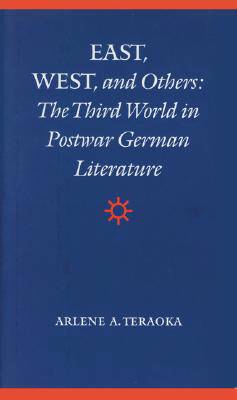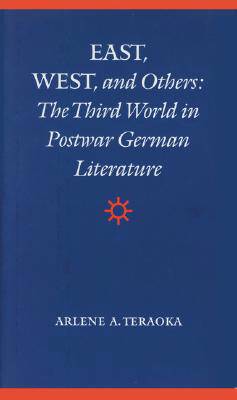
- Retrait gratuit dans votre magasin Club
- 7.000.000 titres dans notre catalogue
- Payer en toute sécurité
- Toujours un magasin près de chez vous
- Retrait gratuit dans votre magasin Club
- 7.000.0000 titres dans notre catalogue
- Payer en toute sécurité
- Toujours un magasin près de chez vous
83,95 €
+ 167 points
Description
East, West, and Others is the first work to examine the Third World in German literature from World War II to the present. Arlene A. Teraoka investigates how prominent post-World War II East and West German authors have portrayed the Third World. She discusses the persistent stereotypes of race, culture, and sexuality in texts by authors whose careers were shaped by concerns with Third World politics. Those writers include Anna Seghers, Peter Weiss, Hans Magnus Enzensberger, and Heiner Müller; East Germans Claus Hammel and Peter Hacks; and the documentary West German writers Max von der Grün, Günter Wallraff, and Paul Geiersbach.
Teraoka demonstrates the continuing German need to construct a postwar identity freed from the fascist past and the conflicts and clichés that inevitably mar this dream of the self. Whether authors project a champion of humanity who upholds Enlightenment ideals or a fragmented European protagonist paralyzed by guilt, all negotiate between the forces of rationality and prejudice, universality and difference, solidarity and helplessness.
Spécifications
Parties prenantes
- Auteur(s) :
- Editeur:
Contenu
- Nombre de pages :
- 252
- Langue:
- Anglais
- Collection :
Caractéristiques
- EAN:
- 9780803244313
- Date de parution :
- 01-11-96
- Format:
- Livre relié
- Format numérique:
- Genaaid
- Dimensions :
- 142 mm x 236 mm
- Poids :
- 544 g

Les avis
Nous publions uniquement les avis qui respectent les conditions requises. Consultez nos conditions pour les avis.






